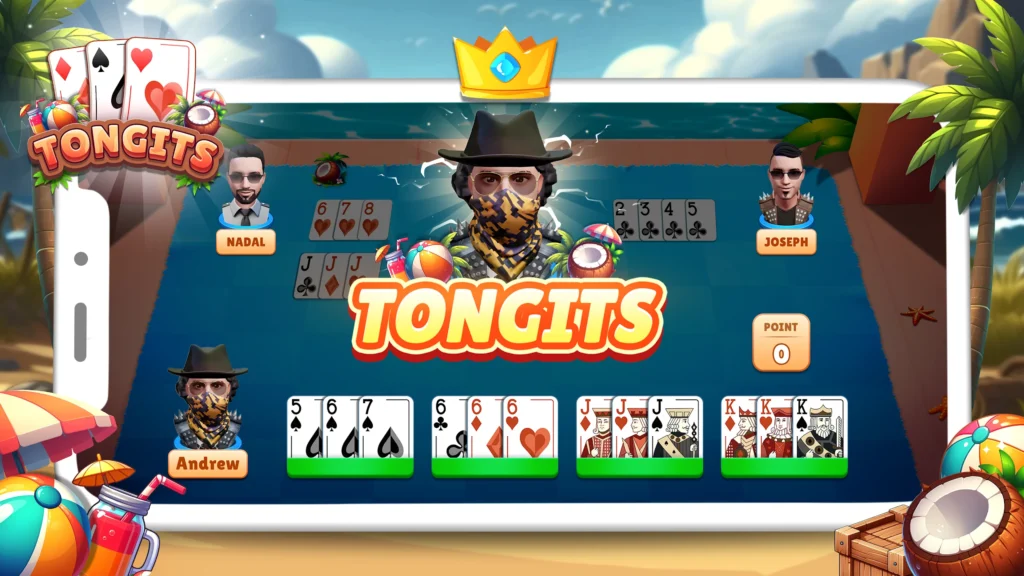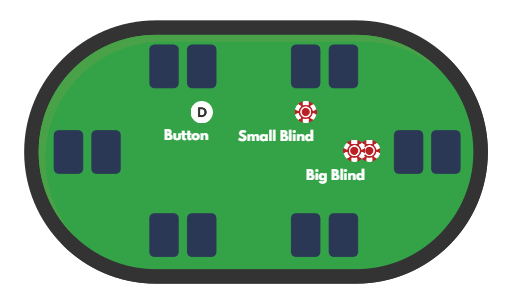About this game
Welcome to Ultimate Poker: Poker Full House Offline Card Game, the ultimate poker experience right at your fingertips! Whether you’re a seasoned poker pro or just starting out, this game offers thrilling gameplay and immersive features that will keep you hooked for hours on end.
Play anytime, anywhere, even without an internet connection. Ultimate Poker Full House Offline allows you to enjoy the thrill of poker without worrying about internet connectivity, making it perfect for travel or when you’re on the go.
Test your skills against a range of AI opponents, each with their own playing style and level of expertise. From novice players to seasoned pros, you’ll encounter a variety of opponents that will keep you on your toes and push your poker skills to the limit.
Immerse yourself in the world of poker with stunning graphics and realistic sound effects. From the shuffle of the cards to the cheers of victory, every aspect of the game is designed to provide an authentic and immersive experience.
Are you ready to test your skills and become the ultimate poker champion? Download Ultimate Poker: Full House Offline now and start your journey to poker greatness!



The Deal
Just like any card game, Poker cannot be played without a deck of cards! Although some games use modified decks, almost every variation utilizes the standard Anglo-American 52-card deck.
A “deck” is simply the total collection of a full set of a particular pattern of cards. The 52 cards make up the deck.
Chips
As betting is an integral part of all Poker games, both as a method of keeping score and as a strategic in-game resource, it is important to understand the base unit of monetary value in Poker: The chip.
Chips are tokens, easily portable substitutions for the cash value they are worth. Whether playing at home or in the casino, chips are an essential part of the game.
When playing at a casino, chips will be traded for cash as one walks onto the casino floor. When leaving the casino, chips can be traded in 1:1 for their total cash value. When playing at home, a simple Poker kit is sufficient and readily available from any department store.
Blinds and Antes
These chips are necessary for the gameplay of Poker. In many variations, there exists a concept known as the “ante.” The ante is a prerequisite charge paid by all Players sitting at the table. Antes are paid in before cards are dealt, and must be paid by each Player. Once cards are dealt, Players are then given the ability to make an additional bet on top of their ante.
In addition to the Antes paid up by every Player, most Poker games involve a mechanic known as the “Blinds.” There are two blinds, the Big Blind and the Small Blind.
The Big and Small Blinds are additional compulsory bets. These positions move clockwise around the table, as the Dealing position does in this and other card games.

The Small Blind is to the immediate clockwise of the Dealer, and the Big Blind immediately clockwise to them. This way, a new Player becomes the Dealer, the Player that was the Small Blind becomes the Dealer, and then the Player that was the Big Blind becomes the Small Blind.
In games that utilize blinds, Players are usually able to fold without paying their ante.
- The value of the Big Blind is the full value of the Ante.
- The Small Blind is the half-value of the Ante.
- The Big Blind must pay the full value of the Ante, regardless if they fold.
- The Small Blind must pay half-value of the Ante, even if they fold.
Antes and Blinds exist in order to increase the speed of the game, preventing Players from simply folding every hand, and maintaining their chips. The Blinds and Antes, therefore, act as “time limits” of sorts, meaning a Player must act to maintain their lead or else they will lose it slowly to attrition anyway.
Betting Rounds
As betting is such an integral part of Poker, it is a necessity to discuss the opportunities Players have to make those psychologically charged wagers. Although there are many more, today the two most popular types of Poker are: Community Card and Draw.
Draw Games
In Draw games, players pay their ante and are dealt their cards face down. Players are allowed to make an additional bet.
Afterward begins the next action phase, which in Draw Poker is the trade-in.
Players are able to discard and redraw from the deck the same number of discards. After this trade-in, Players are given an additional betting round.
The most popular variant is 5-Card Draw.
Community Games
In Community Card games, there are special traditional names for the betting rounds.
- Pre-flop: The Blinds and Antes are paid in during the “Pre-flop.”
- Flop: Once all Players have paid their required ante, the “flop” then begins. Community card Poker is so named because there are public cards upon which all Players can build their hand. The “Flop” is therefore the name of the first three community cards, all revealed at once.
- Turn: After the flop has been revealed, a new betting round begins. After the flop comes the “turn”.
- River: The final betting round is known as the “river.”
The Turn and River follow the same procedure as the flop phase, except that the turn and river both only reveal a single community card.
In all games of Poker, all Players must make the same bet in order to continue to the next action phase or betting round. If Player 1 decides to bet $40, then all other Players must bet at least $40.
Action Phase
Once it is an individual Player’s turn, they have begun the action phase. This is where the strategy exists. Players have several options once the onus is on them to continue the game: Check, Bet, or Fold.
Checking
“Checking” is the traditional name in Poker for simply taking no action. When a Player checks, they are choosing to “wait and see” what the other Players at the table will choose to do before making their move. A common non-verbal shorthand to represent a check is a simple knock on the table with one’s fingers or knuckles.
Checks can only be made if there is no outstanding bet. For example, if Player 1 bets $10, Player 2 does not have the option to check. They must either match Player 1’s bet in order to continue playing or relinquish themselves from the game by “folding.”
Betting
Betting comes in two flavors, depending on the Player’s strategy. There are matched bets, known as “Calls”, and bets that are higher than previous bets, known as a “Raise.”
Calling
When calling, Players put up the requisite amount of money to equal the previously highest bet.
Raising
When raising, a Player bets more than the previous highest bet, forcing all other Players to either match or raise their new bet, or else they will fold.
All-in
There is a special kind of raise, known as the “All-in.” When a Player goes “All-in” they are betting the entire amount of chips they command. If a Player loses an All-in wager, they lose all of their chips.
Folding
Folding is the third action, a Player surrendering their cards (without allowing other Players to see them) to the Dealer. Players who fold are removed from the hand, and can no longer call, raise, or check. Folded Players will not gain back any of the money they have already placed into the pot, but they also cannot be forced to match other Player’s bets for the remainder of the hand.
Limits and Stakes
“Stakes” are merely the estimated value of a table’s potential winnings. Stakes can be considered the casual observation of a table, with “low stakes” being a table whose total monetary value is rather low. “high stakes” on the other hand would be a table with quite a large pot of money.
In addition to the above rules, many casinos will additionally implement betting limits at their tables. These can either be minimums, maximums, or both.
A casino table with betting maximums will prevent Players from joining a table with more money than the other Players. Betting maximums allow for fair games even as Players leave and join the table.
A casino table with betting minimums prevents Players from playing at a particular table unless they are willing to wager the minimum amount of advertised money. Many times, casino tables with betting minimums are found in the VIP and “High Stakes” sections of the casino.
Hand Rankings and Scoring
Poker, as a meld-making comparing game, has a settled hierarchy of melds. Generally speaking, the order of melds is the same across all games of Poker. Listed below are the charted hands of Poker in order from least valuable to most valuable.
Pair
A set of two cards that are the same rank (Ace, 2-10, J, Q, K, Ace)
Ex. 2♥, 2♦
Two Pair
A set of two pairs within the same hand.
Ex. 4♥,4♦,6♠,6♣
Three-Of-A-Kind
A set of three cards that are the same rank.
Ex. 3♥,3♦,3♣
Straight
A set of cards that contain a specific number of cards (usually five) in immediately ascending or descending order. Straights do not take account of a card’s suit (♥♦♣♠).
Ex. 2♥,3♣,4♣,5♥,6♠
Flush
A set of cards that contain a specific number of cards (usually five) that all share the same suit. Flushes do not take into account a card’s rank.
Ex. 8♠,3♠,K♠,9♠,2♠
Full House
A set of cards that combines a Three-of-A-Kind with a Pair in the same hand. Full Houses do not take into account a card’s suit.
Ex. 3♥,3♣, 6♠,6♣,6♥
Four-of-A-Kind
A set of cards that is made up of four cards that are all the same rank, or all of the copies of a particular card within a single standard deck.
Ex. 4♥,4♦,4♣,4♠
Straight Flush
A set of cards composed of a straight and flush simultaneously. The cards ascend in order while also being all of the same suit.
Ex. 4♦,5♦,6♦,7♦,8♦
Royal Flush
Essentially the same as a Straight Flush, though more valuable because of its specific conditions. To be a Royal Flush, it must be a Straight Flush made with all of the “royal” or face cards.
Ex. 9♦, 10♦, J♦, Q♦, K♦ or 10♦, J♦, Q,♦ K♦, A♦
Additionally, if there is no Player at the table who possesses a single meld, then the Player in possession of the highest-ranking card will win. If Player 1 has an Ace, and no other Players have an Ace, or at least a Pair, then Player 1 would win the pot.
Basic Poker Rules
The basic rules of poker games can be summarized as follows:
- Players must always ante up, even if they intend on folding right away. Players who wish to sit at the table must pay their ante every hand.
- Consult the chart if you need to, but try to memorize the hierarchy of melds. Once a bet is made, it cannot be returned, so be sure to only bet when your chances of a good hand are high.
- Players must match the previously highest bet in order to continue playing the hand. If they do not wish to do so, Players may fold instead.
- It is considered bad etiquette to show or tell of one’s cards after they have folded. Particularly statistically minded Players will be able to gain a large amount of information from seeing folded cards, as they are cards that are certain to be removed from the deck.
- All good Players have an excellent “Poker Face.” Do your best to keep your face devoid of all emotion, or even better, misdirect opponents with false tells.


